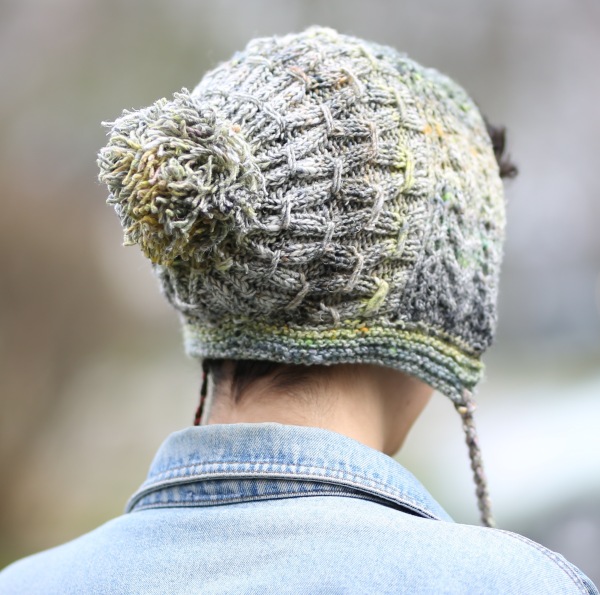Greetings from Ein Qiniya, a village in Palestine just outside Ramallah. It’s been over three months since I left Chicago, and I can’t imagine a more interesting place to have been exploring and getting to know. Palestine is a country of unending beauty, magnificent culture, and infinitely kindhearted natives with relentless hospitality and compassion.
For the last month I have been living and volunteering on an arboretum and wildflower conservatory on the side of a mountain outside Ramallah; rising with the sun each morning, the volunteers and I plant trees, cultivate wildflower growth, and build Hugelkultur mounds to convert dry olive branches and manure into fertile soil for growing vegetables.
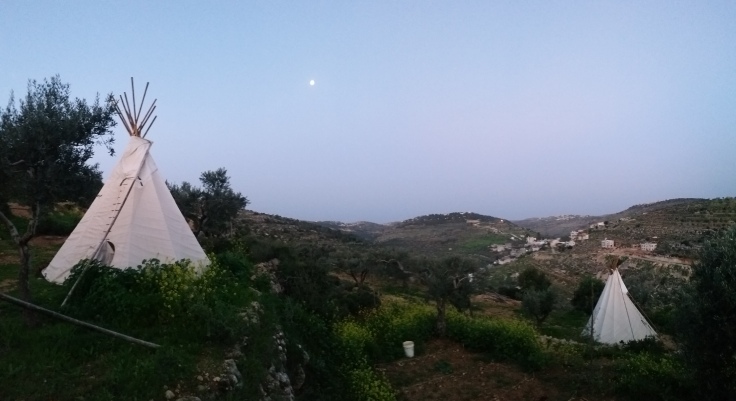
Mashjar Juthour is a unique and ambitious plot of land dedicated to fostering positive and holistic ecosystem growth in a country actively under siege and resisting ruination on all fronts—political, economic, and social. The Mashjar (Arabic for arboretum) is surrounded by illegal Israeli settlements and an Israeli military base on neighboring mountaintops and operates under military law for Area C in Israeli West Bank territories. Because of the Area C designation, Mashjar Juthour is legally barred by Israel from building any permanent structures, having access to natural groundwater supplies within the property lines, and utilizing Palestinian municipality protection or resources. While planting trees and cultivating indigenous growth on the mountain, we are regularly visited by Israeli r.c. drones monitoring the compliance with Area C protocol.
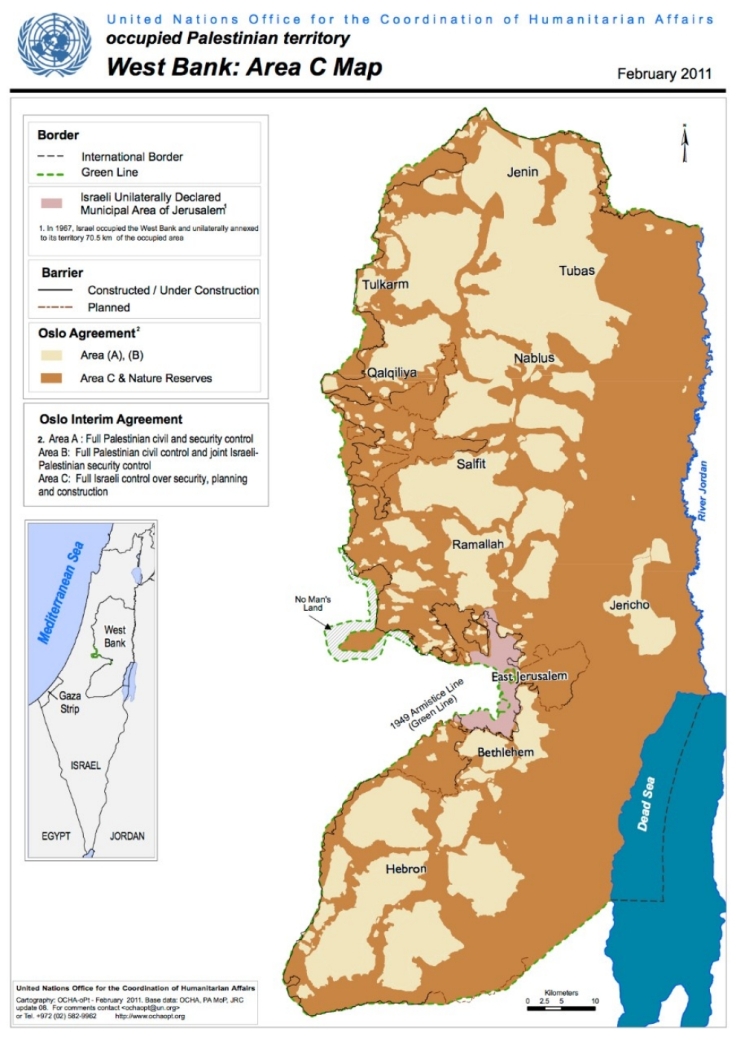
The settlers neighboring Mashjar are relatively tame compared so some living outside Nablus, in the sense that there isn’t daily gunfire or groups of conservative Jews with automatic rifles storming the streets at night. In Nablus it’s another story, and when I was studying Arabic and teaching English there I very quickly grew accustomed to firing rounds ringing through the valley and the occasional explosion nearby. Settlers regularly set fire to Palestinian homes at random with poor excuses for provocation, and the Israeli soldiers arrest civilians from their homes under the protection of midnight darkness to avoid stone-throwing onlookers. Palestinian civilians arrested by Israeli solders can end up in jail without a cause or a trial for anywhere between a month and fifteen years, even though the city of Nablus is Area A and the Palestinian municipality is alleged to have sole jurisdiction.
Nablus and Hebron are pointed to as the most conservative Islamic cities in Palestine, partly because of the checkpoints completely surrounding both places. Soldiers regularly shut the checkpoints, barring all traffic from entering or exiting the cities for days—sometimes weeks—at a time. During the intifadas both cities were under siege and isolated in this way; more recently the checkpoints have been closed during times of major protests or high profile killings on either side. When the checkpoints are closed, everyone stuck inside is completely vulnerable to violence from heavily armed settlers who serve as self-appointed — and Israeli funded — prison guards and executioners for innocent Palestinian civilians.
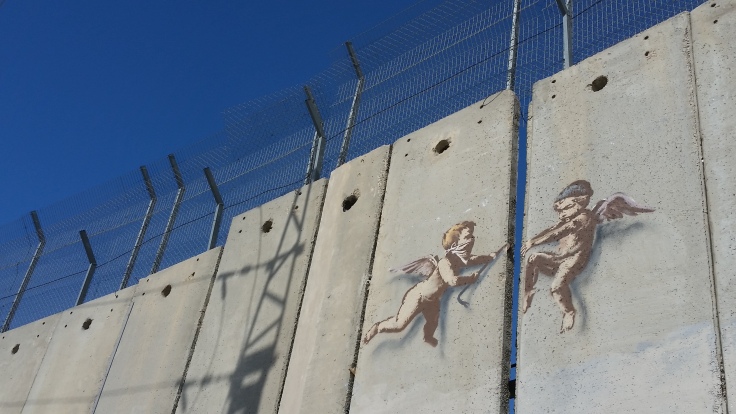
Morgan and Saleh, the committed project leaders and stewards of Mashjar Juthour, are unwaveringly determined to enrich Palestinian soil and raise awareness amongst other locals to do the same. While I film Saleh giving a tutorial on planting Syrian ash trees high up on a terrace in the mountain—first in Arabic and again in English—we are halted and forced to wait while the Israeli fighter jets finish circling loudly overhead. Palestine has no air force, and the captives of the occupation are reminded of their vulnerability each day as helicopters and airplanes soar unimaginably close to the ground.
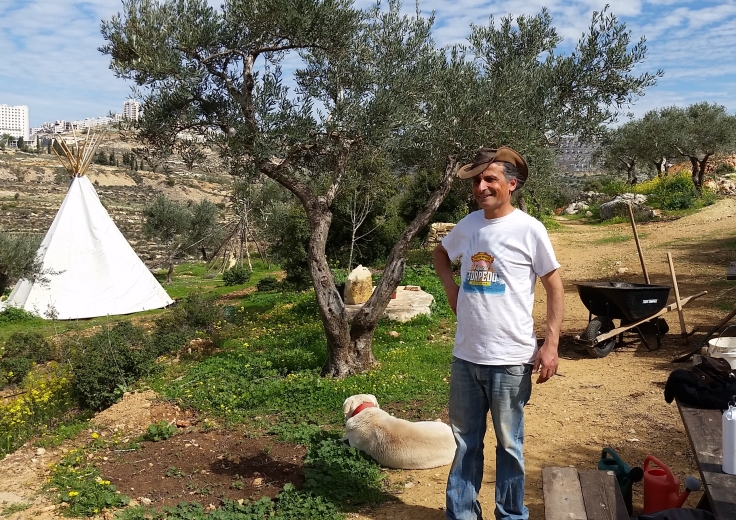
Many of the trees Saleh and Morgan acquire are brought to Mashjar from nurseries in the Golan Heights and tree farms throughout rest of the region. Because of his family’s registered status as Christian, Saleh is one of a rare few Palestinians permitted to apply for papers to exit the West Bank territories twice a year—for Christmas and Easter. Recently he utilized this opportunity to visit a tree nursery near Nazareth, taking an overflowing flatbed of future Mashjar residents back through the Qalandia checkpoint into Ramallah.
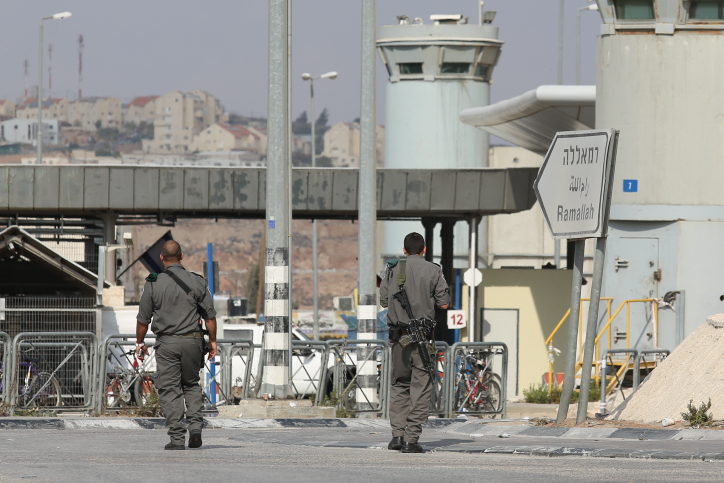
A Mashjar volunteer with a drivers license was needed for the journey, as even with his Easter permit Saleh is barred from operating a vehicle on the Israeli side of the wall. As we neared the guards stopping exiting cars and checking papers early in the day, Saleh got out from behind the wheel and was required to walk through the checkpoint in a different spot and to show his papers on foot; after flashing our American and European passports and answering a few questions we drove past the guards through the heavily armed gate, and met him on the other side.
As an American yielding a Jewish visa to Israel, crossing the border checkpoints and spending time in pre-1948 Palestine is always a disturbing and highly-privileged experience. Most of the people I’ve met living in Palestine have West Bank – only ID cards, meaning they are not permitted to exit the eight-meter walls of the West Bank nor to enter their own capitol: Al-Quds (Arabic for Jerusalem). Propaganda and lies about Palestine and West Bank are rampant throughout Western media and within Israel, and often while crossing the border into the West Bank I have been stopped by guards and told by 18 or 19-year old soldiers that it’s not safe for Jews or tourists to be in Arab areas.
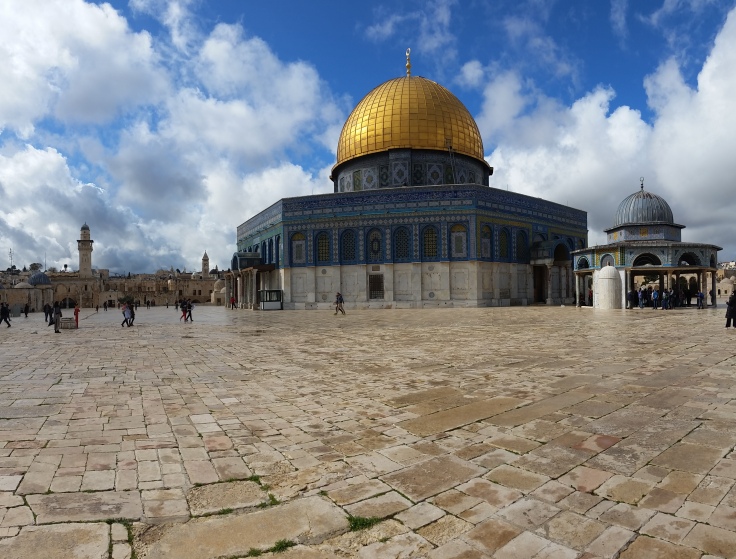
The Right of Return, an internationally supported law giving all Palestinians the right to the property they and their families were displaced from going back to 1947, has been denied to Palestinians by Israel under the guise of impending peace negotiations. Israel repeatedly denies the basis for the Right of Return in international law, and in the same breath enforces the Jewish Law of Return—granting all Jews the right to settle permanently in Palestine. It is for this reason that I, as an American of Jewish descent, was granted a 3-year work visa to Israel with minimal vetting and the potential to extend it for another two years after the first three.
The Israeli government has seized all of Palestinian water supply and forced them to buy back – at significant markup – their own resources. The scores of consequences to this harsh existence for Palestinians living in the West Bank and Gaza are too numerous to mention, but one notable reality is clear as day once you cross over the Green Line: with water stolen from Syria and Palestine, Israelis are perfectly comfortable flushing bath tissue down their toilets. Nowhere in the West Bank or Gaza are the pipes able to withstand this simple luxury, and all restrooms are equipped with a wastepaper bin accordingly.
Visiting the tree nursery outside Nazareth was a pleasure plagued with sorrow. The 300+ acres of impressive tree saplings and rare plants cannot be acknowledged without noting the thousands and thousands of cubic meters of stolen water used each year to cultivate the land. The man running the place found it curious our bunch had traveled all the way from Ramallah but didn’t think much of it; when Saleh showed interest in some very young saplings and sprouting plants he was advised to come back in three or four weeks when they’d be ready for transplanting—the significance of our days’ journey was lost on the Israelis. Saleh nodded his head and carried on, calmly inquiring about the market price and quantity of water usage for Israelis with his kind of land.
The military checkpoints at the border walls are not alone; full-on checkpoints complete with watchtowers and units of rifle-clad soldiers in their military Jeep™s are sprinkled all throughout the West Bank, as well as “mobile checkpoints” – those that spring up on roads whenever Israel wants to tighten security and dehumanize Palestinians. When commuting back to Palestine from the US on a freshly issued temporary visa, an American woman with a Palestinian husband and 18-month old son living in Ramallah near Mashjar was once advised by Israeli police to simply divorce her husband when she inquired about the shrinking length of time allotted on her visa. Years ago she was given visas to Palestine for up to one year at a time, but recently it has been reduced only to six months.
Heading to downtown Ramallah from Mashjar is a sense overload; it takes thirty minutes to commute into hustling and bustling Ramallah from the secluded mountainside, but feels like jumping into a different world. Public taxis run back and forth from Ein Qiniya to Ramallah twice an hour, but more often I thumb a ride from local passersby once I’ve hiked down to the main road.
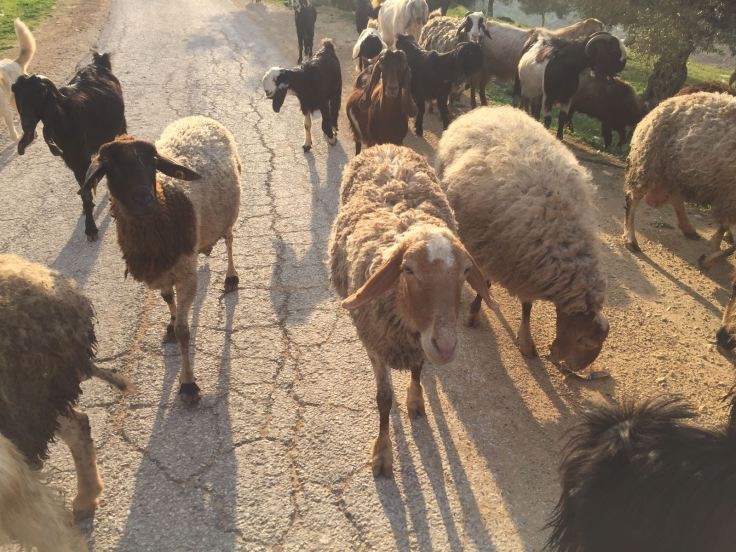
Today I was driven to town by a man who updated me (in Arabic) of todays’ news: two Palestinians had been killed during peaceful protests, one in Hebron and one in Nablus, as well as countless arrests in Ramallah. His friend had been shot in the leg in Ramallah and is currently in the hospital. He told me about the eleven years he spent in Israeli prison for throwing a stone at a solder that had stormed into his village at night, and thereafter invited me to come and have dinner with him and home his family at their home sometime soon. I thanked him for the ride and hoped out in the center of town, grabbing chicken necks from a butcher to feed my puppy on the way to a café to do some work.
The language of the conflict is a critical tool of oppression, cruelly and artfully used as a weapon by the apartheid-enforcing Israelis. Arabic names for cities in pre-1948 Palestine are being erased by history, Google maps, and common knowledge on the both sides of the eight-meter wall. I’ve spoken with Israelis living in Jaffa, present day Tel Aviv, who have referred to the Arabic language as a dirty and disgusting tongue that ought to be extinct.
The largest refugee camp in Nablus, Belata, has over 35,000 inhabitants in less than a square kilometer with some families residing there since Nakba Day (Arabic: the Day of Great Catastrophe) – otherwise known as Israeli Independence Day. Of the families who have financial means to relocate from the camps to other places within Palestine, many choose to stay in the camps in protest of not being allowed back to their original homes in present day Israel. When West Bank and Gaza residents emigrate to countries outside Palestine, their legal status as a Palestinian resident is jeopardized and they are barred from reentry to their own country. Many people living in the refugee camps and throughout Palestine understand that if they leave, they’re abandoning their country and letting down the resistance against occupation.
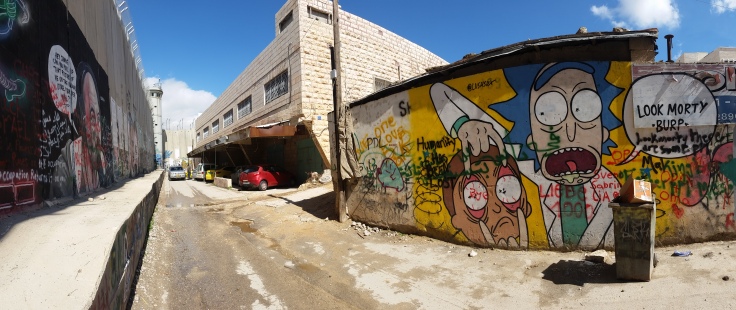
The situation grows more dire each day, with Israel recently barring members of Boycott, Divest, Sanctions (BDS) groups from entering the state on tourist visas, outlawing Jerusalemites from publically demonstrating pro-Palestinian sentiments, and the UN announcing a new power line from Cypress to illegal settlements on the West Bank. Netanyahu succumbed to international condemnation and agreed to demolish thousands of illegal settler homes in the West Bank, and later the same day signed documents approving the new construction of more than twice the amount of homes being torn down.
Hope is not lost amongst the Palestinian people; the unfathomable hospitality and kindness shown to me by Palestinians in the three months I’ve been living here reminds me that even in the darkest of times, the bright light inside each of us shines brightly so long as we care for it accordingly. ‘Woke allies in the West and throughout the world acknowledge the plight of the Palestinians and the humanitarian disaster here as a situation to be remedied immediately, but often fail to follow through with persistent activism and resistance to the apartheid.
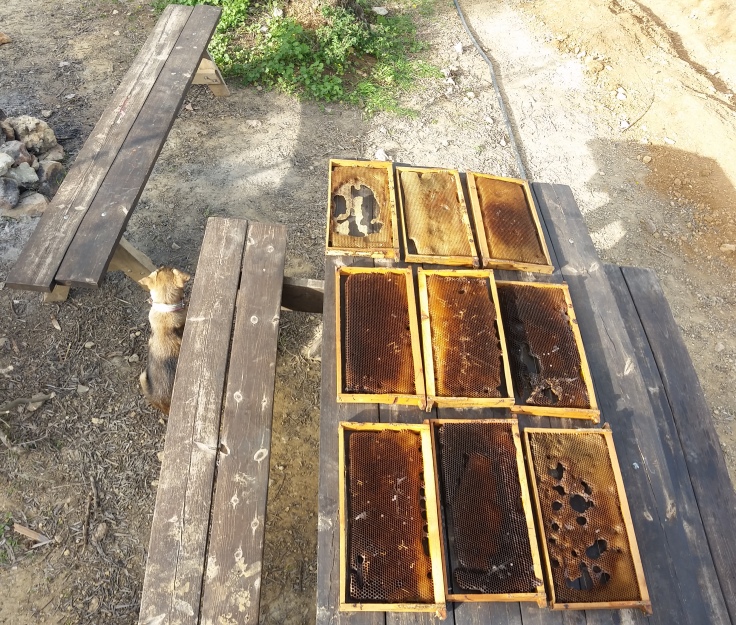
Living here has offered me many opportunities to help others who cultivate positive growth and foster happiness and joy amongst a people plagued with despair and hardship. Due to Israel’s tyrannical and unilateral jurisdiction over Palestine, it’s risky for me to be active on social media and pass along truths about life under occupation and to regularly share information regarding the apartheid here. Allies in the West are necessary to the resistance here, raising awareness and catalyzing active protest against the annihilation of Palestine.
If you are interested in helping the resistance and becoming an ally, please do not hesitate to follow Ma’an News Agency, Al Jezeera, Wafa News, and other sources of truth linked below. Morgan and Saleh are eager to acquire the plot of land neighboring theirs to prevent another buyer from harming the ecosystems neighboring the arboretum and wildflower conservatory, and to make more space for endangered Palestinian trees and wildflowers the bees can pollenate. Any and all help in resisting oppression is greatly appreciated; together with everyone’s active participation we can live to see a day without walls, checkpoints, and apartheid.
In solidarity, from occupied Palestine.
For more information about Mashjar Juthour, please visit











































































